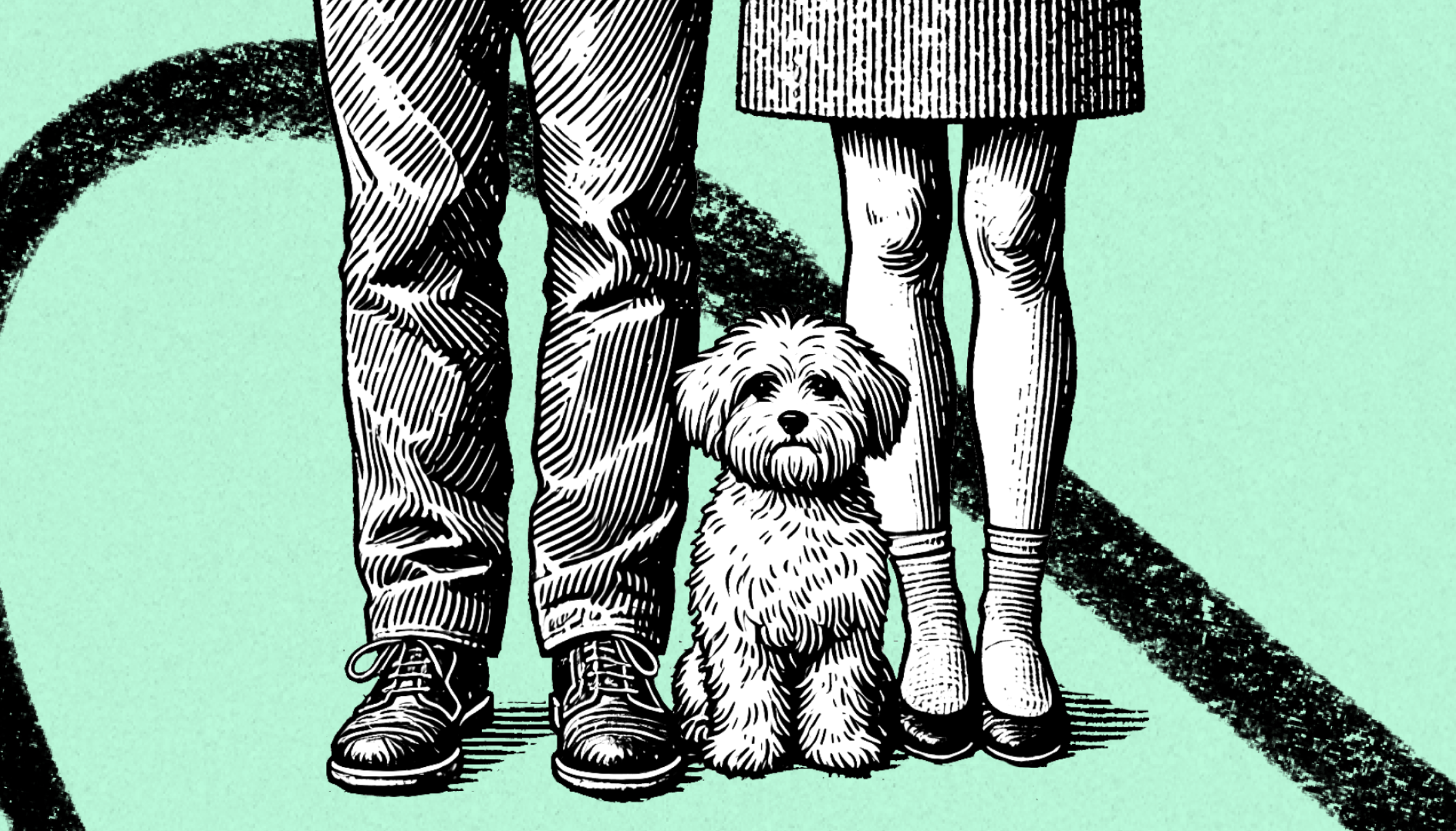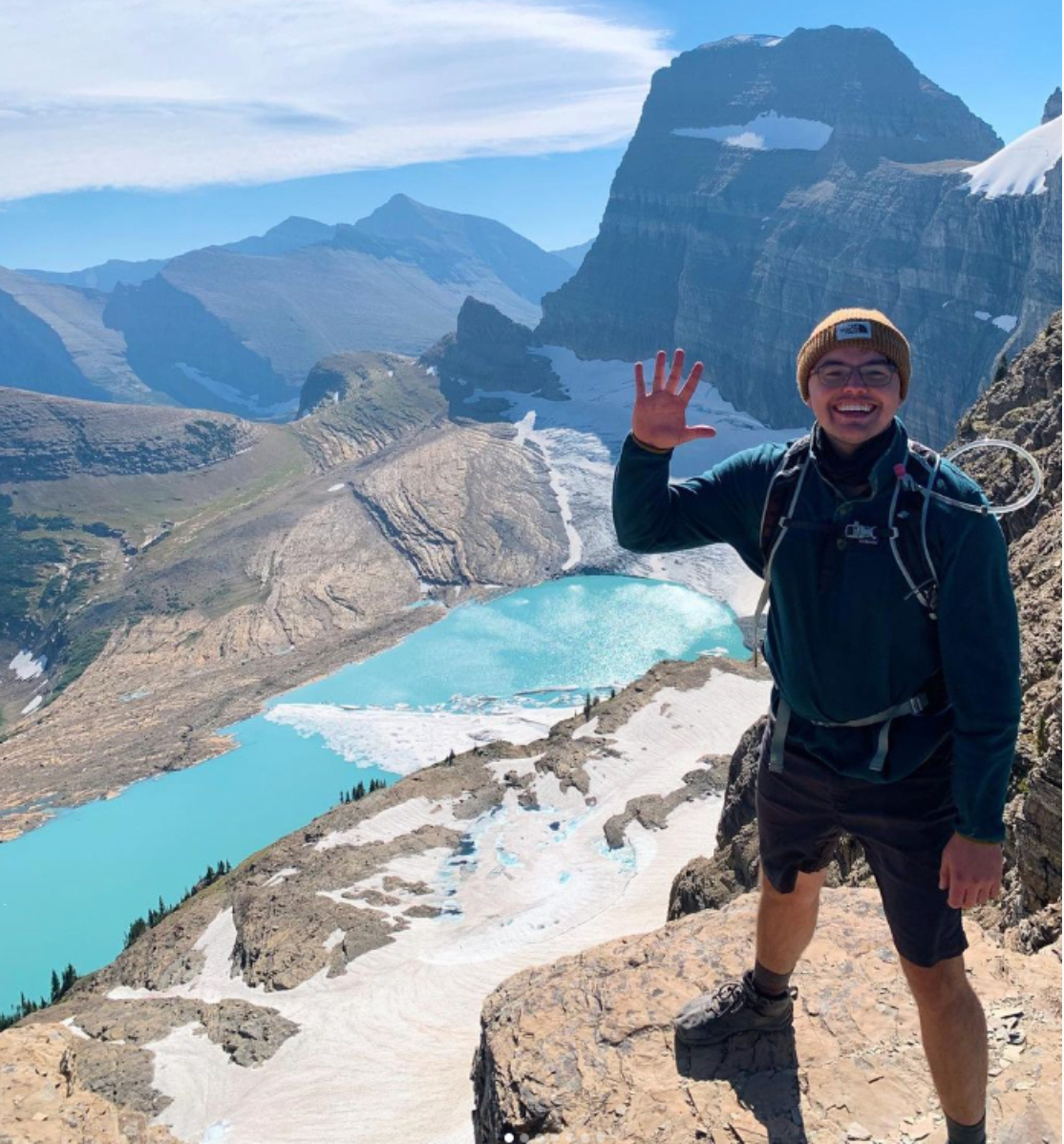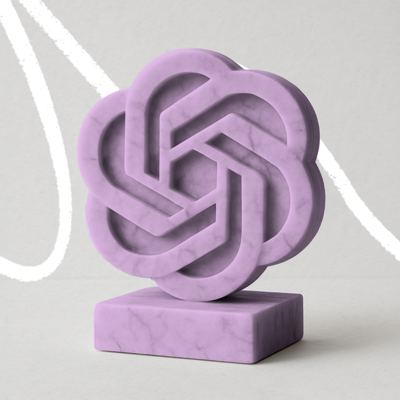
Ambition is a tricky beast. It drives us to achieve great things, but can also leave us feeling perpetually unsatisfied. Recently I’ve been coming back to this piece I wrote last year about finding joy in life's simple moments as a powerful antidote to our culture's obsession with "bigger and better.” —Evan Armstrong
Was this newsletter forwarded to you? Sign up to get it in your inbox.
1.
Lately, I’ve had a new morning routine. A crisp fall breeze stirs through the window around 7 a.m. and I chant, “Mapleeeeee, come heeeeeere.” My eight-pound Aussie-doodle arises from the foot of the bed, groggily padding her squishy paws toward me. She does a form-perfect downward dog and collapses into my arm. If she is feeling vigorous, she’ll give my ear a little lick.
Ten minutes later, I intone the next part of the chant, “Go get Mom.” Maple uncurls, yawns her stinky breath in my face, and climbs over my side-sleeper of a wife like a mountain goat. From there, she becomes the littlest spoon, while I tuck my arm under my wife’s tangled brunette bun to transform our family into an ultra-spoon. If it is a good day, one free of imminent newsletter deadlines for me or Ph.D requirements for my wife, we stay there another hour.
These quiet autumn mornings are among the happiest moments I’ve ever experienced. It’s like when you crack a knuckle that had been heretofore uncrackable. That first pop of tendons strums a chord of unknown satisfaction that goes deeper than the act itself.
So too with these mornings. They are simple and wholly average acts that humans have done forever. But somehow, they still resonate, with a feeling deep and meaningful. The first time I did that Maple chant, it was like my soul popped into a place that was completely natural and—up to that point—unknown.
Perhaps these moments feel so important because of the fall air. This time of year is always one of reflection—it is the anniversary of the doctor declaring me cancer-free. When my doctor told me I was going to live, at the ripe old age of 23, I started a new tradition. Each year, I would do some big hurrah of the body, a beautiful sufferfest where I would do something challenging outside. Hiking to Machu Picchu or adventuring through Montana’s mountains—whatever it was, it had to be BIG. Each year, I felt like I needed to top myself and celebrate even harder. More distance, more far-flung destinations, more money spent. Go bigger and bigger, and grander and grander, until life exploded from every pore.
Celebrating five years cancer-free after a tough hike in Glacier National Park. Source: the author.
Then I met my wife, Morgan, and that all felt a little silly. These quiet moments of morning joy feel more meaningful than those hikes ever did. Don’t get me wrong—the outdoors is and always will be my happy place. But being with Morgan has carved out new parts of myself, new sources of joy that I never knew existed.
This is a phenomenon worth studying. And as my wife and I discussed it, she said something wise. I was “living fuller, not bigger.”
2.
Napkin Math subscribers are highly intelligent, driven people. You likely have a push to do something—anything—that is a good use of this wild and precious life. There is an urgency to achieve, and no matter how big your life gets, that horrible itch to achieve remains. For people like us, it’s impossible to define what success even means.
A few years ago, I was at a dinner with the head of one of the largest private equity funds in the U.S. This guy had made it. His suits were crisp and Italian. His car was so fast it left feelings of poverty in its wake. His caviar was very caviaresque (I’ve never had it, and don’t know what you do with it or how to adjective it).
He started his career as a consultant at McKinsey and eventually made partner, but he was miserable. “It was like spending 15 years making sausage and then discovering that the reward at the top was more sausage,” he told me. So he jumped to private equity, where he once again ground his way to the top. Once on that summit, actively managing billions of dollars, he discovered, to his horror, that the reward was “more sausage.” When I asked him why he kept doing it, he said something to the effect of, “I figured that once I got high enough, everything would taste better.”
It is easy to delude yourself into believing that the promotion, the MRR number, the more dangerous hike, will earn you peace. We delude ourselves that even though it isn’t making us happy now, bigger amounts of the same will do so in the future.
The tricky thing is that sometimes money really can make you happier. As Daniel Tosh jokes, “Don’t you love that one? ‘Money doesn’t buy happiness!’ Do you live in America? Because it buys a WaveRunner. You ever seen a sad person on a WaveRunner? Have you?” In the long run, though, no purchase can bring long-term joy. Life usually becomes a three-way race between your money running out of jet-ski purchases, your career running out of easy promotions, and your own impending sense of doom.
And it’s not just about money. Many of my column’s readers have a chip on their shoulder. They’re founders, professional glass-chewers, investors, artists, people who have some trauma or insecurity that makes them difficult and driven. I fully admit to being one of these assholes. To give you a sense of how strong my illness is, for many years, the password to my computer was the name of a boss who told me, “Evan, you need to fundamentally change who you are if you ever want to succeed in life.” It made me so angry that every time I arrived for battle (i.e., work), just typing his name would be the starting gun for me to deliver.
Despite my current Hallmark-like mornings, I’m still that person who has spite and sulfur pumping through my veins. Now, though, I’ve been able to find a balance and not worry about going bigger. That’s because in marriage I’ve found a reason to try hard at everything.
3.
Aristotle spoke of a concept called “eudaimonia.” It's a term that doesn't translate neatly into English but can be understood as flourishing, or my personal favorite, “the good life.” It means that life isn’t about fleeting pleasures or grand gestures; it is about having a reason to live. When I think of those quiet mornings, the shared chuckles and puppy stretches, I can't help but feel a kinship with this ancient philosopher. Maybe, just maybe, in these understated moments, I'm catching a glimpse of what Aristotle meant—moments defined not by their grandeur, but by their authenticity, by the genuine connection they foster.
By funneling my energy into the good life, into being present in those moments of quiet, I’ve found a new degree of happiness. And it comes from many sources—my wife, Maple, the outdoors, writing this newsletter. I’m not sure how it happens, but people seem to become so over-indexed on one dimension of life that they do so to the detriment of everything else. They’ll get way too into CrossFit or therapy or activism or being Republican. The hobby that was supposed to free them from work ends up crushing everything. It turns out that being good at many things is way harder than being great at one thing.
To be clear, I’m not suggesting that the solution to life’s problems is to marry your soulmate. My relationship is great for me, but a similar partnership would be horrible for others. What I am saying is that you have to have a big reason to care about your life in its totality. Constructing the good life is an individual affair. Personal peace is not delivered via prescription. For me, marriage was this focusing event. For you, it can be anything. What really matters is that you are willing to do the hard work of being more.
This balance and purpose is a devilishly hard thing to achieve. If you are analytical like I am, there is a temptation to try to live the good life via a spreadsheet. All you have to do is construct a perfectly balanced time-allocation algorithm for optimal effort distribution.
In 2015, I met a man worth hundreds of millions who had four executive assistants. One of them had the exclusive task of being “the life tracker.” She tallied every minute of every day, seeing where each tick of the clock was devoted. How much time was spent with each child, what functions of his company were being ignored, whether he went mountain biking in the last three weeks—that sort of thing. Each month, she would produce a monumental report, full of pie charts and trend lines, all to make sure that he spent his time judiciously. If any guy was going to nail the time-allocation algo, this dude was gonna do it.
The result was… not great. He got abs, but he also got divorced. His company’s stock has been down since 2015 (if you know how great the market has been since then, it is something of an accomplishment), but still, abs!
My Maple mornings don’t come from obsessive tracking or productivity hacks. They happen because I’m honest with myself and choose to do the things that matter—which mostly mean the simple things. They emerge from allowing spontaneity and feeling into the moment, rather than meticulously planning every minute. It's the same with my wife. We don't structure our relationship with time blocks or agendas. We just make space for each other, laugh when we mess up, and embrace the serendipity of everyday life. There are weeks where I am up every day at 5 a.m. to write and we don’t see much of each other. There are other weeks where we can squeeze in four date nights a week while happily watching deadlines whiz by.
While most Christians would say the devil is the best liar in the world, I think the best is the person in the mirror. Self-delusion is perhaps the most challenging aspect of attempting the fuller lifestyle. Avoiding work because you're being negligent and avoiding work because you are achieving balance look identical from the outside. Getting this right means you have to be able to confront the full breadth of your weaknesses to ensure you aren’t being controlled by them. The hard part of living fuller, not bigger, is being honest with yourself. That there is no answer is the answer. You have to believe that you have the intelligence and grit to figure it out yourself.
Evan Armstrong is the lead writer for Every, where he writes the Napkin Math column. You can follow him on X at @itsurboyevan and on LinkedIn, and Every on X at @every and on LinkedIn.
The Only Subscription
You Need to
Stay at the
Edge of AI
The essential toolkit for those shaping the future
"This might be the best value you
can get from an AI subscription."
- Jay S.
Join 100,000+ leaders, builders, and innovators

Email address
Already have an account? Sign in
What is included in a subscription?
Daily insights from AI pioneers + early access to powerful AI tools










Comments
Don't have an account? Sign up!
well done repeating this note here thank you
I'm guilty of trying to live larger in many ways to the detriment of other things that are important. Reading this article was a good reminder to consider where and how I spend my time - then live with more intention.
@lancehomer thanks lance, glad it resonated
Thanks for the beautiful piece. Applies in almost every context and setting. One more way this intersects with is Energy allocation. Energy is finite and we need to have the right allocation of it. Any over/under indexing can make the cart look or go tipsy-turvy. The hedonic mindset is unable to make a distinction between is it necessary or not necessary, with a myriad of social/societal pressures around us. The ability to understand and then discern about many such things in many situations either don't occur to people or occur late (admittedly me being one). But then saving grace is Better Late than Never. Keep sharing and writing, I hope I can write on Every someday.